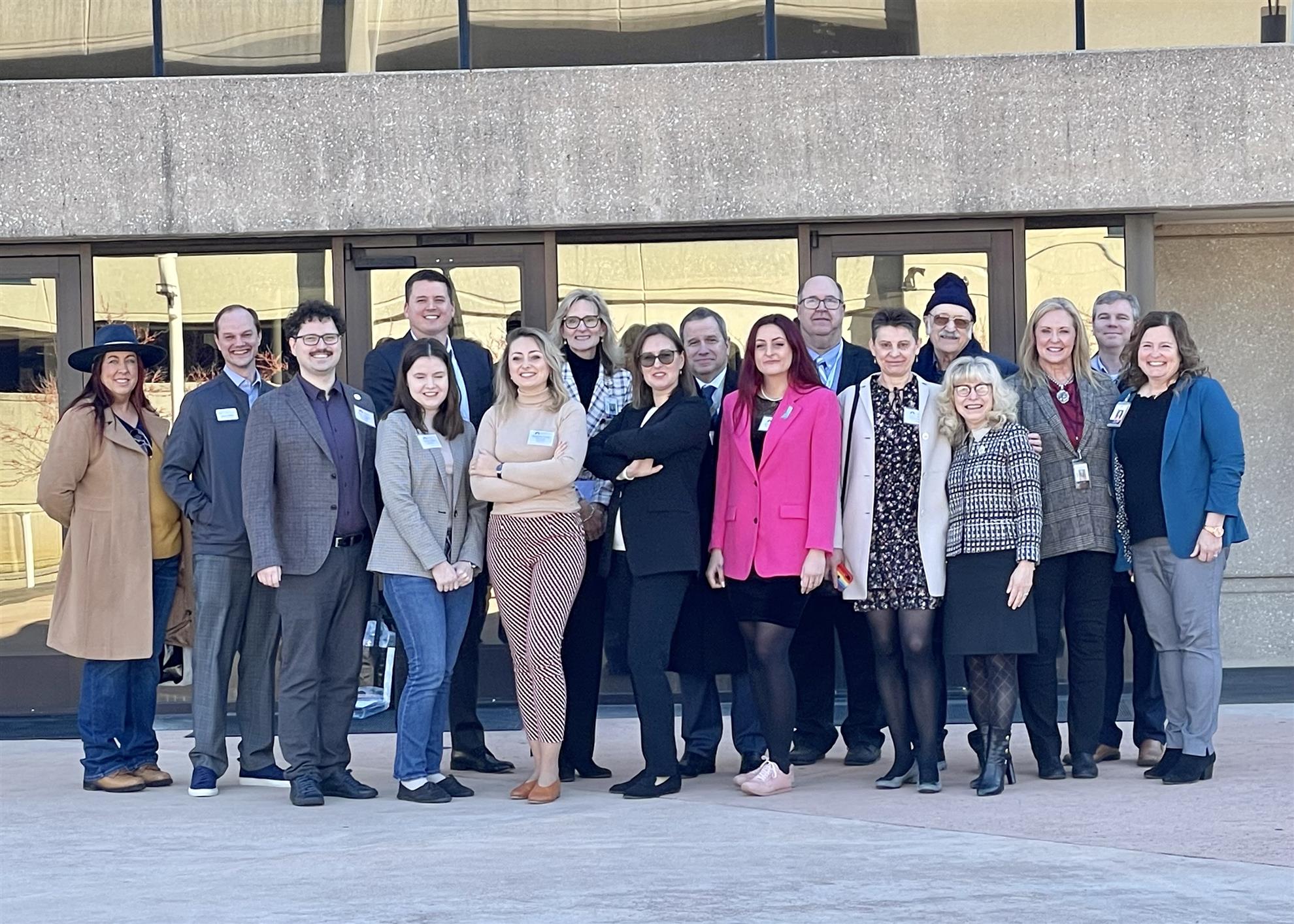
UNT Health Science Center hosted delegates from Poland last week as a part of the Open World Program facilitated by the Mid-Cities Pacesetters Rotary Club. The Bedford chapter of Rotary International. The campus visitors were here to learn about the U.S. health care system and were given an in-depth look at major systems in North Texas like HSC, John Peter Smith hospital and Cook Children’s hospital as well as others in the region.
“There is a list of about a hundred groups that want to come to the U.S. from the former Soviet Republic or Soviet satellites, like Poland, Serbia, Ukraine, Turkistan and on and on,” said Bill Bracken, a Rotary Club representative. “Each of them identifies a theme related to what they want to learn about democracy when they come here. This particular group is focused on medical issues, especially oncology, blood work, cancer and related topics.”
With many stops to make, the delegates had about two hours on the HSC campus, which included a Q&A session with clinic and university leadership. The tour was organized by the director of corporate relations, Lee Ann Embry, in the Office of Institutional Advancement.
Daria Mejnartowicz, the Polish delegate facilitator, said a highlight of the tour was her group’s visit to HSC’s Regional Simulation Lab, which utilizes cutting-edge technology, including lifelike mannequins and the first fully immersive 3-D medical training rooms in the state.
“What captivated me in your institution was the hospitality, great commitment and cordiality with which you welcomed our group,” said delegate facilitator Daria Mejnartowicz. “We felt honored and taken care of by your teachers and management staff. I especially liked the simulation rooms for nurses and radiologists, where you can study anatomy and pathoanatomy in depth using the Anatomage.”
Mejnartowicz noted that U.S. simulation centers typically have models of people with different skin colors, which are not available in Poland.
Jessica Rangle, HSC’s executive VP of Health Systems, said the sim lab is just one example of the types of on-campus resources that compel outsiders to take a closer look at HSC.
“Collaborations such as this become a force multiplier in enhancing the educational experience for learners,” she said. “It’s the inherently collaborative nature of HSC that opens up opportunities to share this knowledge with others. It was an honor to spend time with the Polish delegation, who were medical professionals and educators just like us who are seeking best practices to take back home.”
Along with representatives from the Bedford Rotary Club, Precinct 3 Tarrant County Commissioner Gary Fickes helped orchestrate the visit.
The Bedford Rotary Club has organized six international visits over the past seven years, finding host families to house delegates for an immersive American experience. The Congressional Office for International Leadership funds the Open World Program.
On this visit, Polish delegates spent two days in Washington D.C. before flying into North Texas for the week. While most of their schedule was filled with experiences related to medicine, they also got a taste of Fort Worth with a visit to the Fort Worth Stockyards, the Modern Art Museum of Fort Worth, horseback riding at Camp Carter, barbecue and a trip to Billy Bob’s Texas.
Rangel said these types of international exchanges can only lead to better health care outcomes.
“With frequent international travel, we are all dealing with similar diseases, transmissions, research and care delivery,” she said. “Sharing best practices only enhances each other’s medical education delivery both locally and internationally.”
Mejnartowicz said HSC was one of two modern and innovative simulation centers the group visited while in North Texas.
“I noticed the great passion and commitment with which the teaching staff conducted our tour and proudly told us about their work,” she said. “I would like to be 20 years younger and become an HSC student.”
.jpg)
.jpeg)